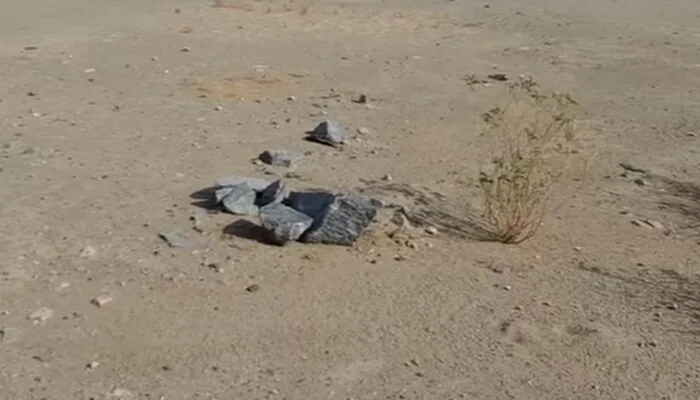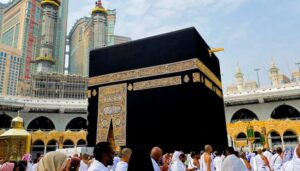
In the ancient city of Makkah, long before Islam spread across the world, there lived a man named Abu Lahab. His real name was ‘Abd al-‘Uzzā ibn ‘Abd al-Muṭṭalib. He came from the noble Quraysh tribe and was the uncle of Prophet Muhammad (peace be upon him). You would think that family ties would guarantee support and loyalty. But Abu Lahab’s story tells a different tale—one of hatred, pride, and rejection of truth.
A Man of Status, Not of Substance
Abu Lahab was not just a common man. He held a high rank in society. He was wealthy, powerful, and feared. His nickname, Abu Lahab, meaning “Father of Flame,” reflected either his reddish complexion or the fiery nature of his personality. But perhaps it was also a warning of the fire that would consume him in the end.

When the Prophet Muhammad (peace be upon him) received revelation, he began by inviting his closest family to the message of Islam. He climbed Mount Safa and called out to the people of Makkah. He asked them if they would believe him if he warned them of an approaching enemy. They replied with confidence, affirming their trust in him as Al-Ameen, the trustworthy.
Then the Prophet warned them of a severe punishment if they continued to worship false gods. The crowd stood silent, unsure of how to respond. But Abu Lahab broke the silence with a loud insult. He shouted, “Perish you! Is this why you gathered us?” His words were cutting. His tone was mocking. He tried to humiliate the Prophet in front of his own people.
A Divine Response to Arrogance
In response to Abu Lahab’s insult, Allah revealed Surah Al-Lahab, a short but powerful chapter of the Qur’an. It condemned Abu Lahab directly by name, declaring, “Perish the hands of Abu Lahab, and perish he.” The Surah made it clear that his wealth and efforts would not save him. It foretold his fate—a blazing fire. This Surah stands out as the only one in the Qur’an that curses an enemy of Islam by name. Not even Pharaoh, the oppressor of Prophet Moses, was cursed in this way. But Abu Lahab’s hatred was so intense, so public, and so relentless that he earned this eternal condemnation.
His Wife
Abu Lahab’s wife, Umm Jamil, was no different. She was the sister of Abu Sufyan and came from a powerful family. But her actions matched her husband’s cruelty. She would place thorns in the Prophet’s path and throw garbage at his doorstep. She would insult and mock him in public gatherings. Her bitterness was personal and fierce.
The Qur’an describes her as “the carrier of firewood.” Scholars interpret this in two ways. Some say it means she literally carried thorns to harm the Prophet. Others say it refers to her spreading lies, gossip, and hatred—fuel for the fire of slander. The Surah also mentions a rope of twisted palm fiber around her neck, which symbolizes the torment she earned through her hatred.
The Battle of Badr
As time passed, Islam continued to grow. The Prophet and his followers migrated to Medina, and the Muslims prepared for battle against the Quraysh. At the Battle of Badr, a decisive moment in Islamic history, the outnumbered Muslims defeated the powerful Quraysh army.

Abu Lahab didn’t participate in the battle himself. He paid someone else to fight in his place. But when the news of Quraysh’s defeat reached Makkah, Abu Lahab was shocked. He was furious and humiliated. For a man who had mocked the Prophet and opposed him for years, this loss was a personal blow. The people of Makkah began to question their idols and leaders. The arrogant had fallen, and the believers had risen.
The Curse Comes True
Not long after the Battle of Badr, Abu Lahab fell ill. Some reports say it was a kind of infectious disease. Others describe it as a skin plague that caused his body to rot. His condition worsened quickly. People avoided him out of fear. He became isolated and rejected. His power meant nothing. His money could not help him. Even his family stayed away.
He died a miserable death. His sons refused to bury him. His corpse lay untouched for three days. Eventually, some slaves were hired to bury him. They dug a shallow grave and threw stones and dirt over his decaying body from a distance. The man who once walked proudly through the streets of Makkah died alone, unloved, and unremembered—except through a curse.
A Legacy of Warning, Not Honor
Abu Lahab’s life is a powerful warningHe was given countless chances to choose the right path. Being a close relative of the Prophet, he had every reason to believe. He could have stood among the earliest believers. Instead, he chose to reject the truth. He chose pride over humility and mockery over meaning. His story is not remembered with honor, but as a symbol of failure and disgrace. Every time Muslims recite Surah Al-Lahab, they remember Abu Lahab—not as a respected figure, but as one who burned in his own arrogance.
Lessons from Abu Lahab’s Life
Abu Lahab’s story teaches us that blood ties do not guarantee righteousness. Being close to someone pious is not enough if you reject their message. Pride is dangerous. It blinds the heart and leads to destruction. Words have weight. One insult from Abu Lahab led to a divine revelation that cursed him for eternity. Wealth is no shield against divine justice. Abu Lahab had everything, but none of it saved him in the end.
Final Thoughts
Abu Lahab didn’t just oppose a man. He opposed the truth. His life could have gone in a different direction if he had listened. But he chose hatred. He chose to fight light with darkness. And in the end, the fire he carried inside consumed him both in this world and the next. The Qur’an says it best: “His wealth and his gains will not benefit him. He will burn in a Fire of Blazing Flame.” Abu Lahab’s story is written not just in history books, but in the Qur’an—forever.
















